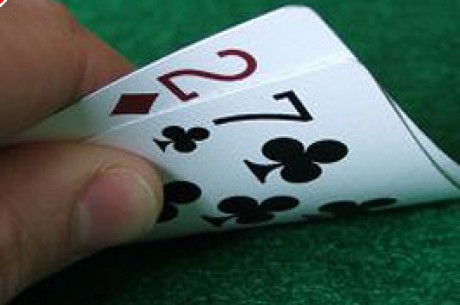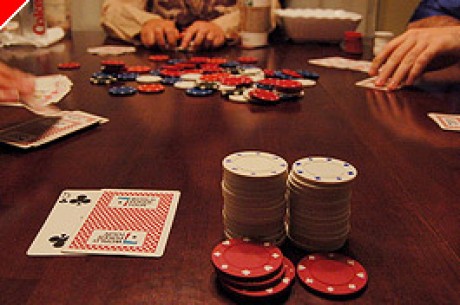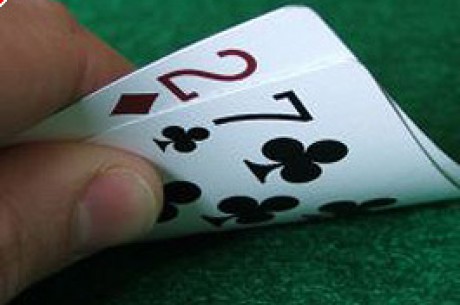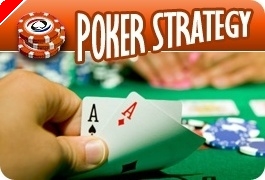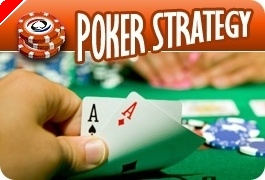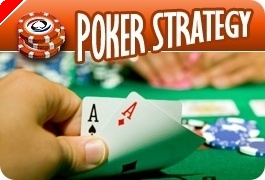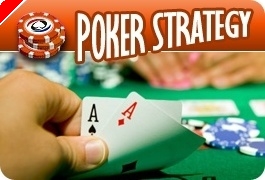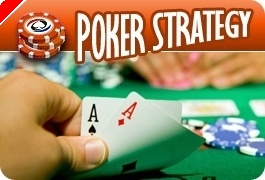Fun Home Poker Game Rules - Push (or Screw Your Neighbor)
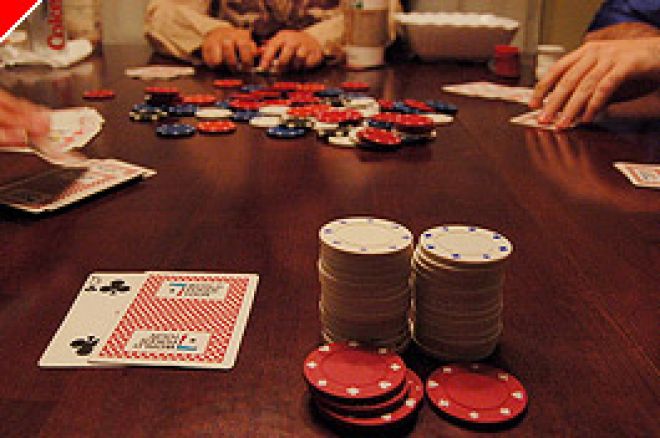
I played Anaconda all through high school in home games in the Albany, New York area. It was the only "pass the trash" game that I was familiar with back then. I wrote about it here on Poker News a while back. It was a great game and I still like playing it from time to time.
It wasn't until I was a happily married man and living in Boston that I discovered another version of the game – a bolder version frankly – that is a variant of stud poker. It's called "Push" or, if you're so inclined "Screw Your Neighbor".
There are many variants of this game – but my favorite, and the one I think of as the most cutthroat, is 5-card Push, hi-lo, with a "replace" on the end. Here's how it's played.
The game is dealt like 5-card stud. Each player ends up with one down card and four up cards. There is an initial betting round after players have their first two cards – one down and one up. They then get three more up cards, dealt one at a time, with a betting round after each card. But there is a twist in how the first upcard of each round gets awarded.
After one downcard is dealt to each player, the dealer deals an upcard to the player to his immediate left. The player may keep it and his initial down card or push it or his downcard to the player on his immediate left. If he pushes either card to his left then the player on his left has the option of keeping the card or pushing it or his other card to his left. A card continues to be pushed until a player elects to keep the card he receives and not to push a card or until a card has been pushed around the table with no player electing to keep it. If that happens – no player electing to keep it – then it is buried at the bottom of the deck.
If a player keeps that initial card and does not pass any card then the next player to his left is dealt a card with the option to keep it or push a card to the next player. This continues until each player has been offered a card. Once all players have had this option then the dealer gives each player who has pushed a card a card that they must keep.
Players must pay for the privilege of pushing a card. In the $2/4 limit game that we played the charge was $1.00 to push.
Let's look at an example of this.
There are six players, from right to left around the table, as follows:
ASH
JIM
RIZ
IKE
JOE
EVE
They are each first dealt one down card:
ASH (Jh)
JIM (Kc)
RIZ (2s)
IKE (9s)
JOE (5c)
EVE (Ah)
ASH, who is the dealer on this round deals an upcard to JIM that JIM may either keep or push to RIZ. It is the Js.
JIM declines the Js (he'd love a King or maybe another club, but the Js doesn't help his hand). So he pushes the Js to RIZ.
RIZ doesn't like the Js. (He'd like another low card – ideally a suited low card, to go with his 2s) so he passes it to IKE.
IKE, with his 9s, figures he's got very little chance of winning either high or low in this game. He doesn't want to invest any more money in the hand. And the Js could help him toward a straight or a flush. So he elects not to push a card and to keep the Js and his 9s.
The dealer then deals a card off the top of the deck to JOE. It is the 9c. Though JOE has the 5c, the 9c doesn't really help him – since he's looking for a low hand. So he pushes the 9c to EVE.
EVE doesn't want the 9c. She wants to keep her Ah. So she pushes the 9c to ASH. ASH doesn't want it. He's the last player in the round and retires the 9c, keeping his Jh. He then deals an upcard to each player with only one card, starting to his left and ending with himself. After this is done the players have the following hands:
ASH (Jh)8d
JIM (Kc)Kh
RIZ (2s)8h
IKE (9s)Js
JOE (5c)Jc
EVE (Ah)Ks
The betting begins with a forced bet from the low card showing. That would be ASH with the 8d. He puts in $1.00.
JIM, with two Kings, raises to $2.00. RIZ, with two to a good low, calls. IKE has two to a flush and two to a straight, doesn't see any Tens and only sees one spade, and so calls. JOE has two to a flush but really wanted a low card. He folds. And EVE, with her Ace in the hole, calls. ASH. Though he only has to put in $1 more to call, sees two Jacks gone, and 8 gone, and figures this isn't his hand. He folds.
Since JIM started things off last time with the first option, RIZ gets the honors on this round. He is dealt the 3h. He likes it. It goes with his other cards. He keeps them all. IKE gets dealt the next card: the 2d. He doesn't like it. It doesn't go with what he's already holding. And so he pushes it to EVE. EVE likes it very much and elects to push her Ks to JIM, who cannot believe his good fortune. He now has three Kings and keeps them.
IKE and EVE only have two cards after the push round, and so the dealer gives them their third card. IKE gets the 4s and EVE gets the 4d. After the second round of dealing the remaining players have the following hands:
JIM: (Kc)KhKs
RIZ: (2s)8h3h
IKE: (9s)Js4s
EVE: (Ah)2d4d
There is a round of betting that starts with JIM, with his pair of Kings showing. He bets $2. RIZ calls as do IKE and EVE.
An upcard is now dealt to IKE. It is the 3s. IKE keeps it – going for that flush. He has a few ways to make the flush now. He might get it on the next card. If he doesn't he can push that card and get another. And even then, he has a final "replace" where he can exchange a card and get another card: $5 for an upcard and $10 for a down card. But those options come later. In any event, he keeps the 3s.
EVE then gets the next card off the deck. It is the 6d. She couldn't have asked for a better card. She keeps it.
JIM is dealt the 7c. Now here is where some strategy comes into play. The card neither helps nor hurts him. If he's going to improve it's probably going to be to a full house. The 7 is a live card. He might pair it on a later round. But he has other considerations. Since he is surely going for high, he wants there to be competition for low – since it will tend to increase the size of the pot. He also wants to hurt his opponent's chance of getting a flush. So he doesn't want to pass RIZ a heart. He elects to pass the 7c and pay the $1 into the pot.
RIZ keeps the 7c. The dealer then gives JIM, the only player without four cards, a fourth card. JIM gets the 2c. A round of betting ensues.
JIM: (Kc)KhKs2c
RIZ: (2s)8h3h7c
IKE: (9s)Js4s3s
EVE: (Ah)2d4d6d
JIM is still high with his pair of Kings showing. He bets $4.
RIZ calls. IKE calls. EVE, with such an excellent low draw, decides to raise to $8.00. JIM reraises, not wanting IKE to catch a flush for free. RIZ calls, IKE calls, and EVE caps the raising. Everyone calls.
EVE has the first option and is dealt the Qd. Though it makes her hand look like it may be a flush, she knows she really wants a low card and so passes the Qd to JIM.
JIM wants a live card to pair for the full house, which would give him a lock on high. The 2 is slightly dead since one is exposed in EVE's hand. He figures that RIZ may also hold a 2, since it looks like he's going low. So he elects to pass the 2c and keep the Qd.
RIZ surely doesn't want the 2c. It pairs his other 2 and kills his low hand. He is about to pass it to IKE when he realizes that he may spark a nice raising war by giving IKE a spade and probably a flush. He elects to keep the 2c and pass the 2s that he has in the hole. JIM goes nuts, of course, but that's the nature of this game. IKE gladly keeps the 2s.
JIM gets an upcard. RIZ gets a downcard and EVE gets an upcard as follows:
JIM: (Kc)KhKsQd7h
RIZ: (6h)8h3h7c2c
IKE: (9s)Js4s3s2s
EVE (Ah)2d4d6dAc
JIM is high. He checks, fearing the flush. RIZ, with a made 87 low, thinks about betting. But he sees EVE's monster of a board and checks. IKE has a flush and bets $4.00. EVE, hoping to scare out RIZ, raises to $8.00. JIM, hoping to make a full house with a replacement, calls. RIZ, hoping EVE is bluffing and looking at a huge pot, calls the $4.00 raise. IKE reraises to $12 and EVE caps it at $16. JIM and RIZ both call the double raise and IKE calls EVE's raise.
The game is played with a simultaneous declaration of replace by having the players, on the count of three, either put their finger on the card they want to replace or put their finger on the table – indicating they don't want to replace a card. Upcards cost $5 to replace; downcards are $10.
JIM elects to replace the 7h. He gets the unhelpful Td. EVE elects to replace her downcard Ah. She receives the As. Neither RIZ nor IKE replace anything.
The betting begins again with JIM. He is disgusted and checks. RIZ, unsure whether he is in the lead, also checks. IKE, who knows he has won, bets $4. EVE realizes that a bluff wouldn't work and that she is surely beaten by RIZ, folds. JIM, figuring that he is already in deep, calls as well. RIZ calls.
The players make their declarations – putting one chip in their hand for low, two for high and three for both high and low.
There are no surprises. JIM and IKE both declare high and RIZ declares low. JIM has the high hand showing and checks. RIZ, as the guaranteed winner since he is the only one declaring in his direction, cannot initiate the betting and so checks. IKE bets $4. JIM and RIZ call. IKE has the flush; JIM the three Kings. IKE wins high and RIZ, with his uncontested 87 low hand wins low. IKE and RIZ split a huge pot.
As you can see, this is a game with tons of action, neat twists and turns of good and bad fortune, and even some interpersonal interaction to liven things up. It's one of those games that some players love and others groan over. I recommend it highly – especially if the stakes are not too high – so players aren't tempted to collude.

